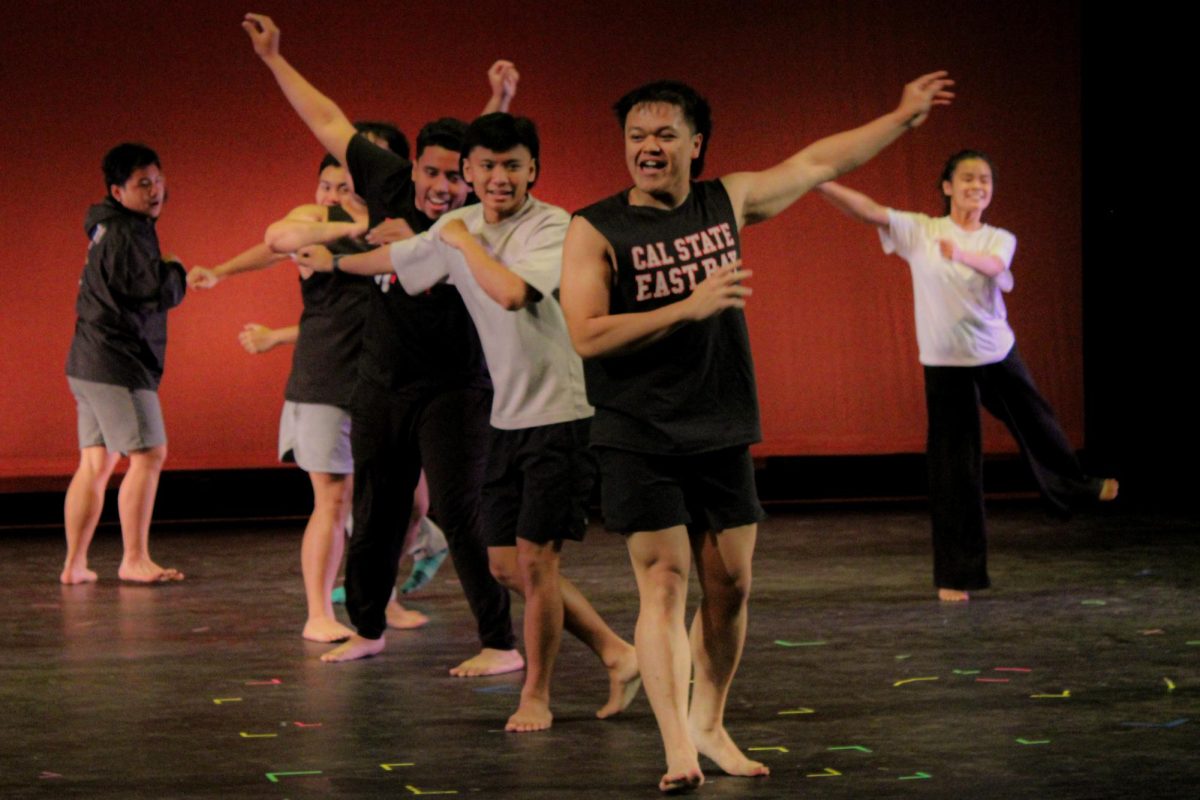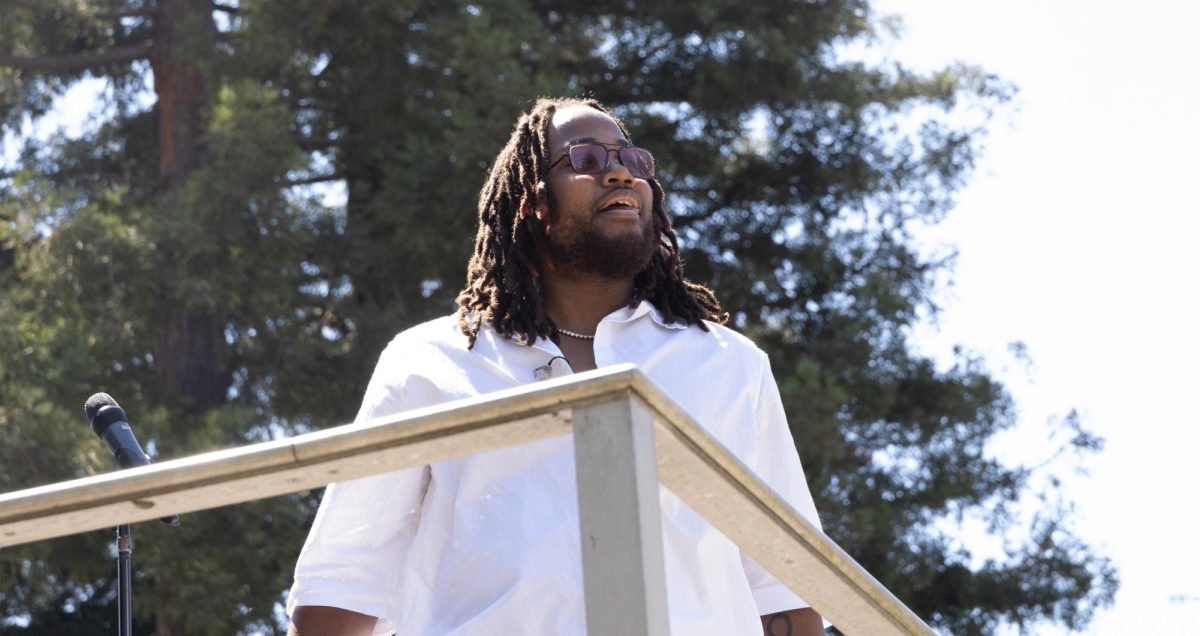Gideon Lustig, an Israeli diplomat, spoke to a packed audience in the Biella room of the CSU East Bay Hayward campus library last week.
Lustig, whose official title is the Deputy Consul General of Israel to the Pacific Northwest, was invited by the Model United Nations (Model UN) student club to speak to CSUEB students about the Israeli government.
The visit came after a tumultuous year of popular uprisings that have resulted in toppled regimes Israel had longstanding peace agreements with, leaving the future of the region uncertain.
Lustig, a younger man in his early to mid-30s with a slight accent, spoke mostly about Israel’s society and its politics, highlighting its diverse population and minuscule geographic size.
“We are an immigrant country,” said Lustig. “When you walk on the street in Israel, you find a very diverse society of people who came from all over the world.”
He compared Israel’s size to the state of New Jersey, with a 15-minute drive from border to border at its smallest point.
After Lustig announced the existence of “over a million” Arab Israeli citizens in the country of 7.7 million people, he was asked why the figure does not include Arabs in the occupied Palestinian territories.
Lustig said the Israeli settlers are counted in the census because they are law-abiding citizens of Israel. He did not, however, address whether the settlers should be allowed to live in the occupied Palestinian territories at all, as their presence is one of the main points of contention holding back the peace talks.
He explained how Israel was founded as “the home country for the Jews” because of atrocities committed by Nazi Germany during WWII, and that because the Nazis sent anyone with Jewish blood to the internment camps — even if that relative was three generations back— Israeli law uses the same standards when deciding who can emigrate to their country.
This widely inclusive immigration policy is in direct contrast to that of Palestine’s, whose citizens are born in the country.
Lustig then demonstrated how Israel’s system of proportional representation gives some extreme religious factions powerful leverage in Parliament.
“That means that some minorities in our population, like ultra-orthodox Jews, can have a lot of power to put on the prime minister,” said Lustig.
He then explained how Israel’s judicial authority, the Supreme Court of Justice, is a well-respected institution, highlighted the rape conviction and seven-year sentence of former Israeli president Moshe Katsav as a prime example.
“Now that’s something that you would not find in other countries in the world,” said Lustig. “I’m really proud to say that nobody in Israel is above the law.”
With the event coming to a close, Lustig spoke briefly about relations with Palestinian authorities, highlighting increased cooperation and economic development between the two governments.
“The cooperation between Israeli authorities and Palestinian authorities made it possible for an economic flourishing in the West Bank,” Lustig claimed. “If you take the percentage of economic growth in the West Bank in the last two years it comes up to about six or seven percent.”
Lustig was only able to quickly address the increasingly tense relations with Iran, pointing out that “Iran is not a middle east proble,” but also “a problem for the whole world.”
Professor Norman Bowen, Ph.D. of the Political Science department, was in attendance and said “it was an honor to have the Israeli Vice-Consul on campus.”
“He gave an excellent talk highlighting Israel’s existential security dilemma and its robust democratic system,” said Bowen, who is also the director of the International Studies Program. “However, he was misleading about Israeli immigration and citizenship policies and he failed to address any of the key issues that must be resolved to achieve a viable two-state solution.”
“I enjoyed hearing about Israeli politics,” said Stephanie Flowers, a 23-year-old junior, “but I was hoping he would talk more about relationships with neighboring countries and alternatives to attacking Iran.”











